From processing honey in a Victorian warehouse in downtown Winnipeg, to marketing worldwide, Manitoba’s honey co-operative has grown into an international business
It may have been 75 years ago, but Edwin Hofer still remembers the excitement of delivering honey to the then newly formed honey co-operative at its imposing Bannatyne Avenue processing facility.
“I would go into the old plant with my dad on Bannatyne… we took the honey in pails at that time, there was no machinery then — we did everything by hand,” said Hofer, who continues to keep 100 hives on Deerboine Colony despite being on the cusp of his 82nd birthday.
He was recognized for his 64 years of continuous honey delivery earlier this month during a luncheon celebrating the Manitoba Honey Co-op’s 75th anniversary. Hofer is the longest-running active member of the organization, which was founded in 1938.
Read Also
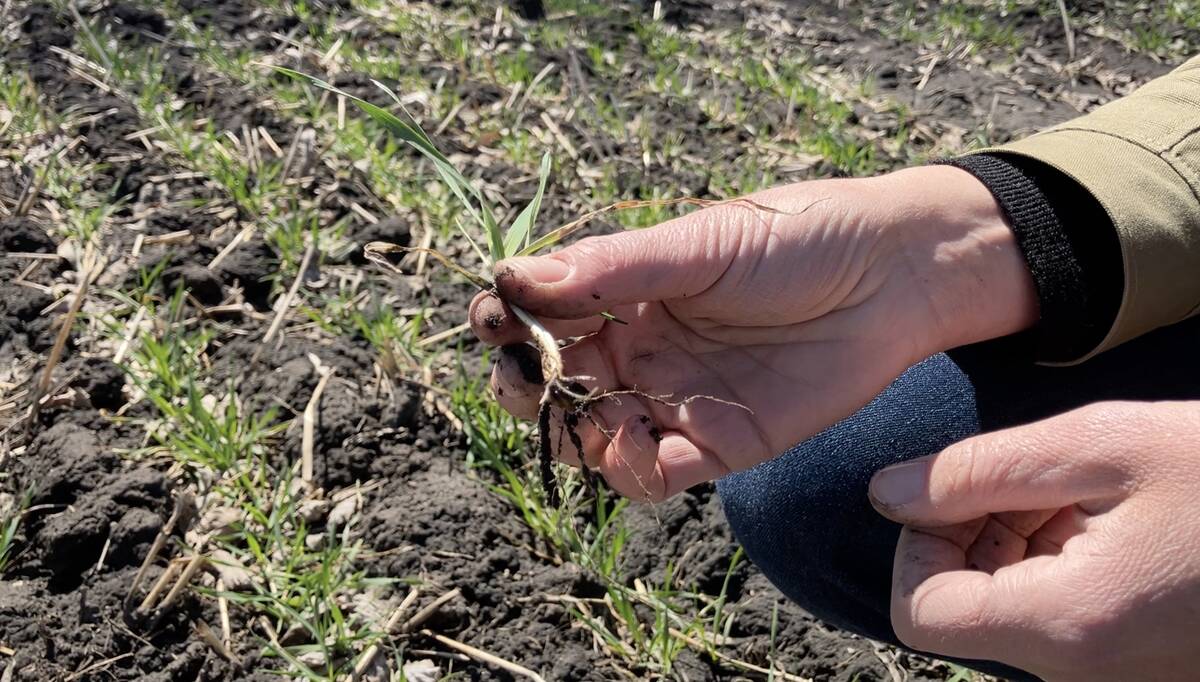
Manitoba farmers wary of research hit after AAFC cuts
Agriculture and Agri-Food Canada cuts claim Portage la Prairie research farm; Manitoba farms groups wrestle with potential impact.
It was in January of that same year that 350 members of the Manitoba Beekeepers’ Association unanimously voted to establish a co-operative honey-processing and -marketing association during a meeting at the Fort Garry Hotel in Winnipeg. By April of 1938, the province had granted the group its charter under The Companies Act, and the Manitoba Co-operative Honey Producers Ltd. was officially formed.
Members bought one share each in the fledgling co-operative for a cost of $1.
“The reason the co-op was formed… was because of issues with high-moisture honey fermentation — they had trouble marketing a quality-consistent product,” said Lorne Peters, whose father was a founding member of the marketing organization.
“So the co-op came into being at a time when there was frustration among producers, and they thought there was a better way… the co-op was formed to try and overcome those kinds of issues and it has grown from there,” he said.
United action
However, not everything went smoothly as the co-op launched into action, or at least tried to. Canvassers were sent into the countryside to sign up apiarists in the spring of 1938, but the response was not what they hoped for as some balked at the $1 cost per share.
Ads ran in local publications, urging honey producers to join.
“Whether it is a game of baseball, or a great war, the surest road to success and victory is by united action. Each individual may be putting forth his greatest effort, but only by combining all those efforts in the same direction, can the game or the war be won,” reads one notice in an attempt to entice producers to jump on board.
But by 1939 things had picked up as the Manitoba Honey Producers hit on a new tactic to raise capital — selling bee packages donated by what the board of directors called “southern bee package men” in return for shares in the co-operative.
Today the Manitoba co-operative has 163 members and has long outgrown its four-storey processing plant in Winnipeg’s Exchange District. In the late 1950s, the co-operative made the decision to build a new plant, and later moved into its current location on Roseberry Street where it continues to expand through the Bee Maid company, formed in 1954 when Manitoba and Saskatchewan agreed to market their honey jointly. The Alberta Honey Producers joined in 1961 and in 1970, the Manitoba co-op purchased the assets of the Saskatchewan organization.
“The 75th is a real milestone,” said current Manitoba co-op chairman Ron Bacon. “A lot of businesses never get to that point, and it’s a great honour that we’re still growing at this time in our history… the future actually looks bright from where we’re sitting today.”
But that doesn’t mean the co-operative doesn’t have its challenges.
Although it supplies honey to companies like Starbucks, Sobeys, Target and Costco, as well as to stores across the globe, it all comes back to the bees.
“There are certainly challenges with maintaining our bees, keeping them alive with all the environmental issues and how farming practices have changed,” said Peters, who has about 1,000 colonies in the Kleefeld area. “We lost over half our bees this spring, and so what does a farmer do when you walk into your barn and half your herd is dead, so to speak? You’ve got to find ways to rebuild.”
Bacon agrees that flagging bee populations could hold Bee Maid and the Manitoba co-operative back, but notes the organization doesn’t wade into the heady issues around bee health or bee imports.
“We’ve got beekeepers on both sides of the debate in this organization, so our policy is to remain neutral on bee-related problems and activities, and focus on marketing and increasing honey consumption,” the chairman said.
Hofer is also looking to the future, hoping his two grandchildren follow in his footsteps and become the fifth generation in his family to take up beekeeping.
“It’s just in my blood, I love working with bees,” he said.

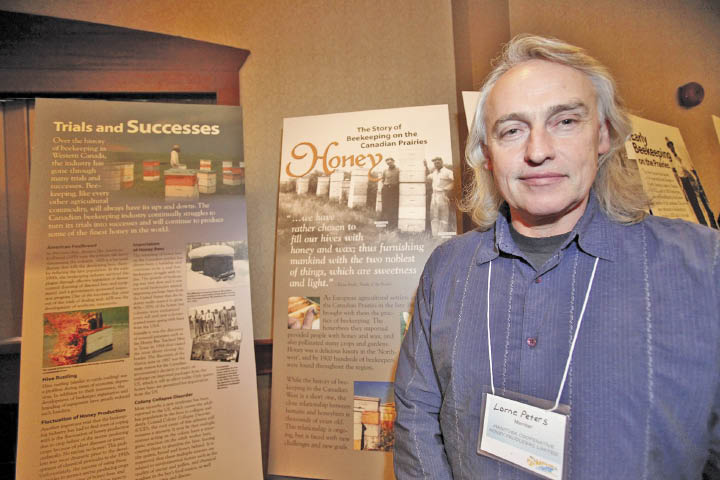

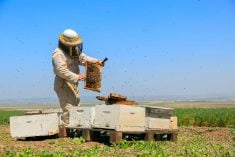
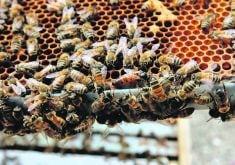

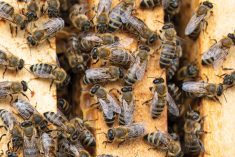
![“It can sit dormant [on] equipment for years and years until hive stressors and hive conditions are right for it to infect the colony.” – Osee Podolsky, Canadian Honey Council.](https://static.manitobacooperator.ca/wp-content/uploads/2023/10/26104651/grafvision_GettyImages-178850019_cmyk-235x157.jpg)







